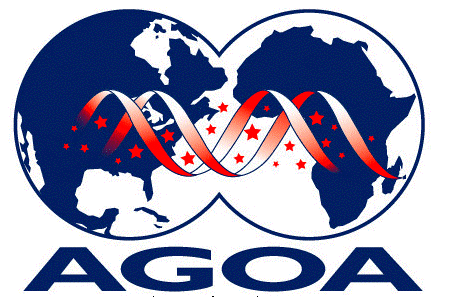Gamechanging Biden Vaccine Announcement Opens the Door to African Pharmaceutical Manufacturing
By Laird TreiberTackling the COVID pandemic remains the top priority for countries around the world. While the 2.25 billion vaccines doses that have been administered globally are a good start, nations still have far to go to provide effective protection, particularly in less developed countries including those in Africa. Until all countries have extensive vaccination coverage, we will all be vulnerable to outbreaks and new variants.President Biden’s announcement on June 9 that the United States will provide 500 million Pfizer vaccines, primarily through the COVAX facility, to 92 poor countries and the African Union over the next 12 months is a game changer in that effort. This announcement instantly gave credibility to the G7’s commitment to provide a billion vaccines and come up with a plan to end the global pandemic by December 2022. More importantly, Biden’s announcement builds on the existing collaboration between governments and certain U.S. companies that will result in 200 million Pfizer doses delivered by the end of 2021. This announcement comes on top of a previous U.S. commitment to provide 80 million doses this year, beginning with an initial 25 million to be shipped by the end of June, including 5 million to Africa. This will help jump start vaccination campaigns across the globe as Pfizer and other companies continue to ramp up their vaccine production. In early June, the U.S. also lifted Defense Production Agreement restrictions on a number of critical inputs, which will also free up more supply for international production.Industry and public health policy groups that are tracking global production now estimate that companies will produce between 9.5 and 12 billion COVID vaccine doses this year. The lower estimate would be enough to provide the 70% coverage for the world’s population that is loosely estimated to provide the “herd immunity” that will help health authorities minimize further outbreaks and the development of variants. Meanwhile, companies are continuing to work hard to bring new vaccines and treatments to bear. In an important development, the World Health Organization issued an Emergency Use Authorization for Sinopharm on May 7, and several other companies have announced progress in their late-stage trials, including CureVac and Novavax, which will not only add additional resources, but can be stored in normal refrigerators. Supply chain challenges remain, although companies are increasingly finding ways to resolve them. The World Health Organization has compiled a database of companies that could help expand capacity of critical items, like glass vials, and is helping to matchmake this potential added capacity with vaccine producers.On the ground, Africa has made significant progress in setting up distribution channels within countries to make better use of the vaccines that have been received. As of June 7, 51 countries in Africa had received 49 million doses, of which 32 million have been administered. While still far below what is needed, this is 2.5 times the number of doses delivered just one month ago, and reflects four additional countries starting campaigns. Some African countries have significantly improved their ability to distribute the vaccines they do receive and inoculate their people. Morocco leads the way, having administered 95% of all the doses it has received, which puts it in third place on the list of African countries in terms of doses delivered per 100 people (just behind Mauritius and Seychelles, which is among the world’s leaders with 67 doses per 100 people). Despite this good news, there are still a dozen or more African countries that have received only a few thousand doses, let alone set up active national vaccine campaigns.Africa will not truly begin to have the health security it needs for the long term until it manufactures more of its own vaccines – whether for COVID or other communicable diseases. Africa imports 99% of the vaccines it consumes for all diseases (70% from India) and 95% of the medicines it uses (e.g., over the counter medications). The African Union and individual African countries have focused on what can be done to increase this capacity. The African Union and the African CDC recently announced their goal of African companies manufacturing 60% of the continent’s vaccine needs for all diseases by 2040. The African Development Bank (AFDB) has set up a $400 million facility to finance this increased capacity, targeting 300 million doses a year.Africa is not starting from zero. According to a study done by the UK government, four companies in four countries (South Africa, Senegal, Tunisia, and Algeria) currently produce yellow fever, rabies and other vaccines or their active components, in addition to Aspen’s recent partnership with JNJ to manufacture its COVID vaccine. Another 6 companies in four countries (including Nigeria, Ethiopia, South Africa and Egypt) are currently planning to set up manufacturing capacity, or could expand existing “fill and finish” processes for imported vaccines. Part of the problem explaining why there have been so few African firms in this space is that, until COVID, there was insufficient demand for any one disease to produce the scale typically needed, especially for more traditional vaccine technology. Arguably, supplying COVID vaccines (and likely boosters or adaptations to protect against variants) could provide the larger scale market to make African production more commercially feasible. Progress in implementing the African Continental Free Trade Agreement (AfCFTA) will also help reduce some costs by facilitating market integration and simplifying a number of commercial processes.While AU and AFDB support will help address some existing barriers, companies looking to manufacture vaccines will still face three important challenges: first, the need to have a secure commitment to buy the vaccines produced; second, the need to train staff (particularly challenging for brand new mRNA techniques); and third, the need for regulatory bodies that can provide certifications that meet international standards. African countries can take important steps now to accelerate the process of expanding African vaccine manufacturing capacity. One of the most important steps they can take is to encourage more countries to ratify the African Medicines Agency (AMA) Treaty. Concluded in 2019, the terms of the agreement require fifteen countries to ratify it to bring it into force. So far, eight countries have done so. This will help harmonize regional regulations and provide uniform guidance for national regulatory bodies to use in issuing the health certificates to allow vaccine distribution within countries. The AMA will also likely be able to expedite the important process of reviewing imports of both medicines and devices, as well as support the development of more robust research and development networks within Africa, including medical testing and trials. All of these steps, in turn, will strengthen Africa’s pharmaceutical manufacturing base.African governments can also accelerate their work with the African Vaccine Acquisition Task Team (AVATT) and other innovative financial mechanisms to provide advanced market commitments or other financial guarantees to offset the risks that companies will face in producing pharmaceuticals. These kinds of market guarantees were critical to the United States’ success in scaling up vaccine production so quickly. Many African governments have had challenges in establishing national vaccine campaigns for traditional diseases. This could be an opportunity for a more holistic health policy approach supporting an increase in African vaccine, pharmaceutical, and medical equipment manufacturing capacity and job creation, while also improving health outcomes.This is the right time for African countries to take the steps they need to expand their vaccine manufacturing, as this is needed not just for the current pandemic. Africa should ideally be the place where malaria and HIV vaccines currently at advanced stages of development ultimately get manufactured. The advent of these new technologies, particularly the mRNA vaccines, could also offer cost effective, targeted means to significantly reduce the prevalence, if not eliminate, some regional diseases that have plagued parts of Africa for generations. While more research is needed, initial results suggest that mRNA may also have applications as more sustainable pesticides, which would create some unique opportunities for Africa to address continent-specific agricultural challenges.While the world still faces a huge challenge in coping with the COVID pandemic, Africa also has significant opportunities to use this crisis to launch an important new chapter in its development. There is a lot governments can do to set the stage for a new chapter of much stronger partnership with commercial companies. CCA’s Health Security and Resilience Initiative is focused on addressing exactly these kinds of problems, bringing both U.S. and African private companies together to see how they can help governments address challenges and improve health outcomes. CCA stands ready to engage with African, American and other international partners to begin implementing some of these exciting areas for follow up, while putting in place the conditions for much greater health security in Africa as a key factor in sustainable prosperity and greater partnership between the U.S. and Africa.



